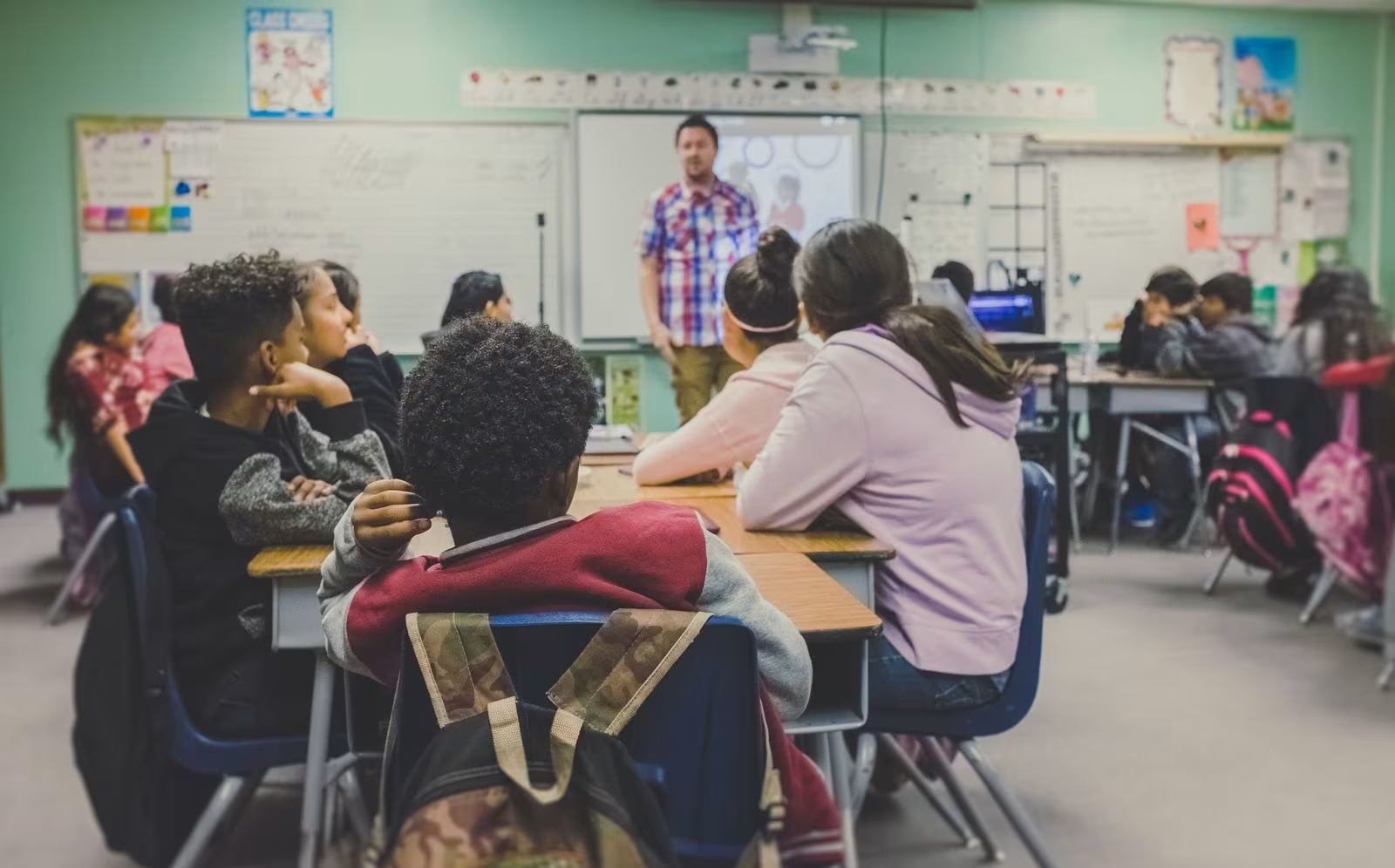An overview of education in France
If you’re thinking of moving to France with your family, be prepared to navigate all the ins and outs of the education system in France. It can be a daunting task, especially if you don’t speak the language. That’s where we can help. In this guide we’ll take you through all the different stages and things to consider.
The good news is that education in France is highly rated as giving students a quality learning experience. That’s because the French government and people really appreciate the importance of education. And so, they provide substantial money towards education.
However, French schools are also known for being strictly educational. Chess, drama, dance or swim clubs - in fact, most extracurricular activities will probably have to be organised away from school. That’s because much of school funding goes to pay for low or no costs of tuition.
WorldRemit Content Team
• 6 mins read • Updated
Education stages in France
The schooling system in France makes education compulsory for children between the ages of three and 16 and consists of four stages:
Preschool (école maternelles) – ages three to six
Primary school (école élémentaire) – ages six to 11
Middle school (collège) – ages 11 to 15
High school (lycée) – ages 15 to 18
You can choose to send your child to a private or a public school within each cycle. Though, of course, you’ll pay for private education.
In the state schools children may have to change buildings, classrooms, and teachers at each stage of their schooling. Whereas in private schools, several, or even all stages, are taught within the same premises and administration.
Preschool education in France (École maternelle)
French preschool education (écoles maternelles) is for children aged three to six years old and helps prepare them for the next stage - primary school. Even at this early age, attendance is compulsory.
Classes focus on reading, writing and numeracy skills, and sometimes include learning a foreign language. This stage offers young international children an excellent way to learn French. The earlier you start, the easier it is to pick up. Preschool is divided into these stages
Petite section - ages 3 to 4
Moyenne section - ages 4 to 5
Grande section - ages 5 to 6
Primary education in France (École élémentaire)
The vast majority of children in France attend a state primary school. These are free, secular, and co-ed. Parents only pay for lunches and class outings - though there may be help for low-income families. Most schools also offer before-school and after-school care, which your child can attend if necessary. Private education is also available.
In primary education there are five levels:
CP (Cours préparatoire) – ages six to seven
CE1 (Cours élémentaire 1) – ages seven to eight
CE2 (Cours élémentaire 2) – ages eight to nine
CM1 (Cours moyen 1) – ages nine to 10
CM2 (Cours moyen 2) – ages 10 to 11
Teachers follow a national educational program. From the first years (CP, CE1, CE2), children start learning a second language. They’re also encouraged to ask questions and practice art, music, and sport. Plus, they're introduced to moral and civic education. In the later years, CM1 and CM2, history, geography, science, and art history are introduced.
Tests and evaluations take place throughout the year to help teachers judge the progress of each child.
Children generally receive 24 hours of teaching time, with many schools closing for all or part of Wednesday. The school year starts in September, and ends in early July - with a number of school breaks in between.
Secondary education in France
The vast majority of secondary school pupils in France attend public, state-operated schools. Around 15% of students attend private secondary school. Most of these are Catholic, however, some private schools offer other forms of education, including international and bilingual schools.
By law, all children must attend school until they are 16. Between the ages of 11 and 15, students in France attend a middle school (collège). And the vast majority stay to continue their education until the age of 18.
Secondary education in France consists of cycles: middle school (collège) and high school (lycée). Students attend middle school from the age of 11 to 15 and high school from ages 15 to 18.
Collège or Middle School
Middle school (collège) in France is composed of four years of study:
Sixième (6ème) – ages 11 to 12
Cinquième (5ème) – ages 12 to 13
Quatrième (4ème) – ages 13 to 14
Troisième (3ème) – ages 14 to 15
French collèges generally teach the following:
French
Mathematics
Science (chemistry, physics, but not biology)
History and geography
Technical education
Art and music
Physical education
Civic education
A foreign language
At 15 years old, students sit the brevet, the Diplôme National du Brevet (or Brevet des Collèges). This test assesses them on French, mathematics, and history/geography. Students can leave school once they turn 16. Though most continue to a lycée.
High school (Lycée)
Student choosing to continue the last three years of secondary education will follow one of three study streams in high school (lycée):
General (lycée générale) – academic training
Technical (lycée technologique) – arts/applied sciences/technical training
Professional (lycée professionnel) – vocational training
Some high schools (lycée polyvalents) incorporate all three training paths.
All lycée or academic streams consist of the following three levels:
Seconde – ages 15 to 16
Première – ages 16 to 17
Terminale – ages 17 to 18
Exams and diplomas
General (Lycée Générale) - At the end of high school, students can sit one of several different baccalauréat exams, which gives them entry to a public French university.
Technical (Lycée Technologique) - here students are preparing for further higher education in specific non-academic, technical fields, such as hospitality management or costume design. There are eight types of baccalauréat technologique, or exam streams, which cover 17 specialist technical fields.
Professional/Vocational (Lycée Professionnel) - this study stream prepares students for vocations (such as plumbers or beauticians) after collège by integrating apprenticeships and professional training into their high school curriculum. Therefore, it’s the best way to enter the workforce right after high school.
There are over 100 different specialities to choose from - and a number of possible diplomas. This might include the Certificat d’aptitude professionnalle (CAP) or Brevet d’études professionnelles (BEP). After finishing three years of this type of lycée with a Baccalauréat Professionel students can still apply for university. However, most go on to vocational training.
Higher education in France
Vocational diplomas
Those attending a Lycée Professionnelusually go on to study a BTS (Brevet de technicien supérieur) or DUT (Diplôme universitaire technologique) which are two-year technology-oriented degrees. BTS courses are offered by high schools and DUTs are awarded by universities.
Academic diplomas
There are three types of higher education institutions in France:
Universities - these are public institutions that offer academic, technical, and professional degrees to any student who has obtained a baccalaurét or its foreign equivalent. University study leads to degrees in many fields. Degrees are awarded at three different levels of achievement, called cycles, within a framework referred to as licence (bachelor degree), master, and doctorat.
Grande écoles - are high prestige, selective public and private institutions and only a minority of students attend them. They offer more specialised three-year courses of study in subjects such as business, public administration or engineering. All students must have a baccalauréat to apply. Many have taken a two-year preparatory course (cours préparatoires or prépas). All have to take a competitive exam to get a place. Students graduate from a Grande école with a master's degree.
Specialised schools - these are public or private institutions that train students for professional careers in specific fields, such as art, architecture, social work or tourism. They offer licence and master degrees.
The US & UK equivalent of french degrees and diplomas
A French licence, a three-year course of study, is an undergraduate degree equivalent to a bachelor's degree in the English-speaking world.
After the licence, students can complete a master, a two-year course of study equivalent to a master's degree. This can be a professional degree (master professionnel), e.g. law, business, or engineering, or it can be a research degree (master recherche), leading towards doctoral work.
Students with a master recherche may complete an additional three years' coursework to qualify for a doctorat(doctoral-degree (PhD) equivalent).
The grading system in France
Grading in the schooling system in France is put on scale between 0 and 20, with the average pass being 10/20. Evaluations are made to see the progress of students each trimester and then with an overall year grade. This determines if a pupil passes onto the next class.
Living abroad and sending money home
So, we’ve looked at the education system in France - but there are other things to consider when moving. You may, even, be considering a move to another country. If so, don’t forget to check out our blog for more resources and guides to living abroad, and how to send money back home to your family with WorldRemit.
Education in France: FAQs
Here are the answers to some frequently asked questions.
What time does school start in France?
Preschool and primary school: School starts at 8.30 and finishes at 16.00. School runs 5 days a week, though most schools have Wednesdays off, or only work in the morning. That adds up to 24 hours per week.
Middle school: School starts at 8.00 and finishes at 17:30 - that’s 26 hours per week. Though there may be some free periods during the week where students go to study hall.
High school: School runs between 8.00 and 18.00. The number of hours will depend on class grade and speciality. But it averages 28.5 hours per week with free periods.
How long is the school year in France?
The school year lasts 10 months. It begins in early September and ends in late June, or early July. There are four school holidays spread over the year:
in late October (Toussaint)
at the holidays season (Christmas/New year)
in the winter (February/March)
in the spring (April/May)
Is school free in France?
Yes. Public schools in France are free, secular, and co-ed. They follow the national curriculum that is set by the Ministry of Education. There are, of course, private fee-paying schools too.
What age do you start school in France?
In France, school is compulsory from three years old until 16. Your child's year of birth determines when they start school, and the school year starts at the beginning of September.
*https://www.studying-in-france.org/french-grading-system/
Disclaimer: The contents of this blog post does not constitute legal or financial advice and is provided for general information purposes only. If you require specific legal and / or financial advice you should contact a specialist lawyer or financial advisor. Information true at time of publishing.
Back to homeWorldRemit allows customers to stay connected and support their loved ones. Our Content Team plays an integral part in that. We celebrate the global community and help you to achieve your ambitions.




